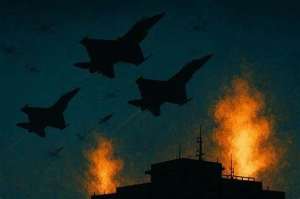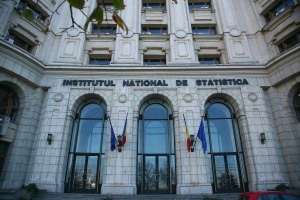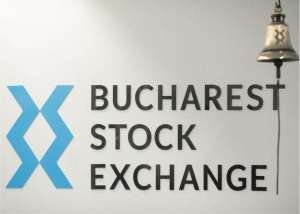• Interview with Mr. Adrian Cucu, the president of the National Office for Fighting and Preventing Money Laundering (ONPCSB)
Reporter: In 2011, the objective of the Office (ONPCSB) was to implement the Action Plan for the application of the National Strategy for Preventing and Fighting Money Laundering. What can you tell us about the implementation of this strategy?
Adrian Cucu: This strategy, which was approved in 2010, is very important because it got all the institutions involved in preventing and fighting money laundering as a serious phenomenon to sit down together. By respecting their respective competences, all the law enforcement institutions in Romania, which includes us, have come to have a good collaboration.
Since we are talking about money laundering, we would like to say that we serve the function of an integrator of the system, but obviously, the concrete attributions are divided among all the institutions which they are involved in. This year is one of the most important for the plan of action, because, by the end of 2012, we need to become truly integrated.
Reporter: You have sent to the Prosecutors' Office of the High Court of Cassation and Justice 207 notifications where serious clues of money laundering were uncovered. Do you find that the number of notifications was high enough?
Adrian Cucu: Obviously, our activity takes into account the principle of legality. Any good quality information which we receive, which we succeed in expanding on and which we have at a certain time, must be submitted to the Prosecutors' Office. At the same time, the Office has physical limits. We need to make sure that the information about criminal deeds goes to the Prosecutors' Office, and we need to focus our activity in order to succeed in selecting the most relevant information out of all the information which we receive.
200 notifications isn't a big number, and it isn't a small number either, it is just the result of our activity last year. Whereas, if, in an exceptional case we were to have just a few dozens or have several hundreds notifications, it wouldn't be a problem, we would have to take all of them into account, to adapt our activity again and, as the case may be, to work even more hours every day.
We currently have 96 employees.
Reporter: What money laundering methods are frequently used?
Adrian Cucu: We take issue with big cash withdrawals which are done without justification. I want to stress that we have no issue with anyone's money, we just have an issue with withdrawals which have no economic justification.
We also have an issue with the transit of money through the accounts of Romanian companies, money which then leaves the country.
There are operations where Romanian citizens are involved in the transfer of money from the West to the East. The destinations are very interesting, even weird sometimes.
We also warn against money which goes through quick transfer systems which use Romanian citizens as intermediaries, who sometimes may be innocent. These citizens, by looking for a source of income on the internet, run across work proposals which require their involvement in financial transfers systems. They are asked to open an account, in which some amounts would then be deposited, usually from a western country. The Romanian citizens then withdraw the money and deposit it, under their own name, in another account which is indicated to them. They make a fee off these operations.
I understand the situation of people who are persistently looking for work, but by using these methods to earn money, they become involved in networks which illegally transfer funds and they may end up having to bear the consequences, including those of the criminal legislation.
I want to warn about these operations because we are dealing with people who have at least average education, as long as they are using the internet, they have the ability to fill out an employment contract, unfortunately one that is simulated on a computer, and as long as they open an account, transfer money to and from it, withdraw cash, etc. It is a system which should be avoided by people of good faith.
Reporter: There have been about 6 notifications of money laundering with suspected ties to funding terrorism. Could you provide details please?
Adrian Cucu: I wouldn't want to talk about it at the current stage, from the point of view of the Office, about terrorism in particular, I'd rather talk about potential terrorism financing operations.
I am only allowed to talk within the limits of the attributions which our institution has and we are looking to identify any type of funds which could be intended to finance operations of that nature.
We only make notifications to the extent where, in our activity, we find occurrences of people, destinations, entities, which have, in turn been tied to terrorist activities, financing of such activities or whom, through their behaviors, could make us think that they may be connected to the funding of terrorism. It is a great responsibility and we treat it as such.
The Office does not make information about its work public, on one hand because the law prohibits us to do so, and on the other hand, our professional deontology requires us not to. It is true that sometimes you feel like attracting attention, like showing off how important your work is, but at the same time, you need to consider the law, first and at the same time, the respect that you have for your profession.
The conclusion is that I will not make a comment, under any form, on any name.
Reporter: How much did you save by accessing the European grants (the HEMOLIA) project?
Adrian Cucu: The money of the Office amounts to almost 200,000 Euros. About 10% of this year's budget has been filled using the money coming from that project.
Reporter: What is the relationship of the Office with the NBR and commercial banks?
Adrian Cucu: We have a cooperation relationship with the banks, as well as with the NBR. We also have a representative of the NBR on the plenum of the Office. We also have a representative of the Romanian Banking Association (ARB), and the relationship with the commercial banks is truly professional.
I could say that the relationship is above good, it is a very high quality professional relationship.
Reporter: Whose notification do you usually respond to? Do you act by default? If yes, what are the elements which you take into account when acting without any outside notification, considering that money transfers are protected by the banking secrecy?
Adrian Cucu: There is also the notification by default, as stipulated in article 19 of the Law no. 656/2002.
Money transfers are protected by banking secrecy when it comes to activities taking place outside this building (ed. note: of the Office).
For us, professional or banking secret is expressly suspended.
Reporter: How do you cooperate with the representatives of the CNVM when it comes to money laundering?
Adrian Cucu: We have a very good relationship. The Commission has a few very well trained individuals, which are reliable partners to us, including in various actions which need representation in some international evaluations.
Reporter: What can you tell us about money laundering through the stock market?
Adrian Cucu: There are many methods - either the money used for buying stocks comes from illicit activities, and buying stocks is trying to direct that money towards a completely different goal, either towards a different owner, or sometimes there are attempts to speculate the value of some stocks, or we have attempts to direct a company towards certain interest groups...
Reporter: Do you have any such cases?
Adrian Cucu: There are 2-3 cases each year where we have seen this kind of occurrences.
Reporter: And have these notified cases been finalized?
Adrian Cucu: I know about the existence of a rather big case which is currently being worked on.
Reporter: According to the activity report, last year you had working reunions with the prosecutors of the Public Ministry in order to train the financial analysts in the Department for the Analysis and processing of information and you have benefited from the expertise of a stock market specialist from the DIICOT. Does the office have analysts dedicated to the stock market?
Adrian Cucu: It would be nice if we had specific specializations or if we could afford a specific specialization. There are a few analysts which have a stronger penchant towards this sector. And when it is necessary, we cooperate with the CNVM.
Reporter: The conference of the States which are members to the Convention of the European Council (May 2005) concerning Laundering, Discovery, Sequestration, and Seizure of the Results of Crimes and Financing Terrorism was signed by 33 countries and ratified by 21 countries. None of the countries which ratified the Convention volunteered for the first evaluation, and therefore Albania was chosen, as it came first alphabetically. Why was Romania chosen the second for evaluation, when the alphabetical order should have been followed? Do you feel that Romania will pass this evaluation in June 2012?
Adrian Cucu: The office is just part of this process, that activity is not coordinated by us, but the fact that we were selected doesn't bother us at all. In the Council, during the specialized meetings, the odds decided that Romania should be evaluated.
On the other hand, the assessment of Romania, when it comes to preventing and fighting money laundering and the funding of terrorism (drawn up by the Moneyval Committee of the European Council), which took place in December led to the adoption of the progress report concerning Romania, without any abstention. The report was positive, and it noted the progress of our institutions, legislation and of the concrete cases where the prosecution's charges were taken to court, and convictions were obtained.
Reporter: The report of the Office mentions sanctions imposed to the Islamic Republic of Iran by Romania as a EU member state. Considering the fact that the most recent sanctions of the EU were issued in January 2012, please tell us whether Romania intends to apply harsher sanctions against Iran.
Adrian Cucu: Any amounts coming from or going to Iran or an Iranian entity, must be authorized, or at least given the green light, notified.
Reporter: You mean even 1,000 dollars?
Adrian Cucu: No. Amounts starting at 10,000 dollars get notified, starting at 40,000 dollars they have to be authorized.
The restrictions against Iran are rather harsh. If stricter sanctions will be made on an international level, we will of course comply with them.
Reporter: I noticed that you have created a department for the notification/authorization of transfers to prevent proliferation. Does this have to do anything to do with Iran?
Adrian Cucu: Absolutely.
Reporter: And what will this department do?
Adrian Cucu: This compartment reviews every trade and authorizes the financial transactions on a case by case basis.
Through an ordinance issued at the end of 2010, we were given this additional task - the authorization of the transactions with Iran. And thus, in the beginning of 2011, we have rendered a norm, which was published in the Official Gazette, being binding to the parties, and we have organized that activity in that respect.
Reporter: The largest weight when it comes to the suspicion of money laundering is Cyprus, which has a certain distinctive feature, being an offshore territory (17%). What steps did you take or did you propose to diminish this phenomenon?
Adrian Cucu: It is a territory which has a legislation which is liked by a lot of people. Indeed, we have a significant volume of information exchange with Cyprus, and from our point of view this country is not a problem.
Reporter: We have frequently run across companies which have their headquarters in a post-office box in Cyprus for which not information about their activity can not be found, including tax evasion...
Adrian Cucu: There is always the real beneficiary of such a post office. And the authorities in the countries in question, usually make information concerning the real beneficiary available to other authorities as well.
Reporter: Sometimes.
Adrian Cucu: Frequently. And I would dare say: increasingly so.
Reporter: There is a high percentage - 30% - of Romanian citizens who are suspected by the foreign authorities as being involved in money laundering, including, among other things, stock market frauds, skimming, online gambling scams...
Adrian Cucu: You mustn't necessarily think about big games, they operate on many levels. These include sales fraud on the internet, credit card cloning, financial indiscipline. Which unfortunately is one of our traits.
In our opinion, some of the requests for information, which concern Romanian citizens, received from our foreign partners, are just cases of citizens who lack financial discipline, or financial education. This thing attracts attention and makes our colleagues in other countries view them with suspicion. In many cases we are faced with the total lack of financial education.
For instance, the transfers of small amounts of money, twice in the same week, the deposits and withdrawals within short periods of time, crossing the border with money on them, declaring a specific amount when entering the country and a different amount when exiting the country etc, all those things turn Romanian citizens into suspects, sometimes factually and legally so, without them actually being involved in any illegal activities.
I think that we should learn the ABCs of financial education. Financial behavior needs to match the times we are living in, and generally speaking, we need to understand that virtual money is the future. You don't throw money on the table, regardless of whether you're sad or happy.
Reporter: The office intends to buy an efficient financial analysis software solution. How much will it cost and where will it get the money?
Adrian Cucu: Yes. We have a few financing sources, the agreement with Switzerland being one of them, because the Office is concerned, as it should be, to find foreign financing sources. The system will be bought on the free market, through the public procurement system, at the best possible price. There will be a call for bids.
Reporter: Prime Minister Mihai Razvan Ungureanu asked the heads of the National Office For Preventing And Fighting Money Laundering to get involved in a more efficient manner in fighting organized crime to increase budget revenues. What steps will you take in that direction?
Adrian Cucu: We are an institution of the Romanian state, specializing in fighting financial crime. It is a serious form of crime. And as a result, the Prime Minister asked us to do our job as good as we can.
We will strive to make sure that all of our activities be carried out at the best possible parameters at the time.
Reporter: Thank you!
In 2011, out of the total notifications forwarded to the criminal prosecution bodies, the main crime which generates dirty money was tax evasion, which was found in 79% of the cases where serious hints were found suggesting money laundering.
This is followed by:
14% - fraud,
3% - crimes stipulated by the law no. 31/1990 concerning companies,
2% - crimes stipulated in the Customs Code
2% - other crimes (drug trafficking, corruption, crimes stipulated by the Law no. 535/2004 concerning preventing and fighting terrorism etc.
•
As for the citizenship of the people suspected of money laundering who were notified to the Prosecutors' Office or the Romanian Intelligence Service (SRI), 48.72% were Romanians, 5.75% - Asians, 44.12% - citizens of other European countries. Citizens of North America and Africa hold less significant weights, (0.64%, and 0.77% respectively).
•
The notifications reviewed by the Plenum of the Office and sent to the Prosecutors' Office of the High Court of Cassation and Justice, based on solid hints of money laundering/funding of terrorist acts, resulted in an amount of about 460 million Euros, and more than 780 individuals were suspected of involvement in such operations.



























































